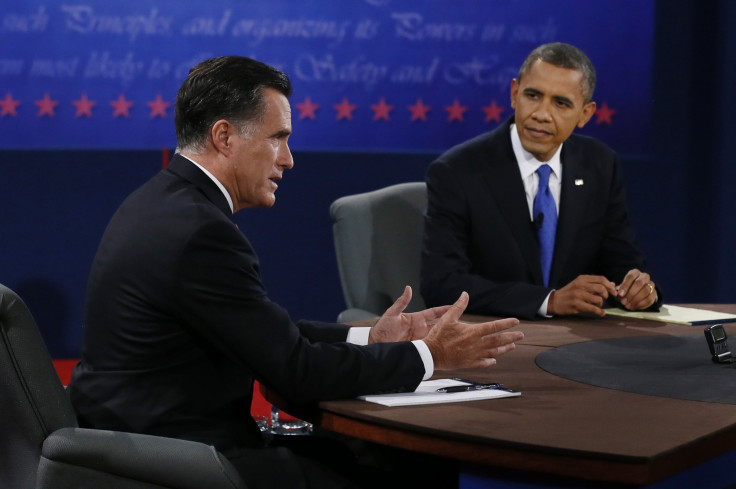Presidential Foreign Policy Debate Live Blog

Monday night brings us the third and final installment of the 2012 presidential debates, a foreign policy-focused showdown at Lynn University in Boca Raton, Fla.
On one level, the confrontation seems unlikely to sway a substantial number of voters. Foreign policy barely registers in polls asking voters about what issues concern them most, reflecting the overriding importance of economic issues in this election.
But that has not prevented the two campaigns from sparring over President Barack Obama's record abroad. After spending months attempting to paint Obama as a weak and indecisive leader who has eroded American influence in the world, Republican nominee Mitt Romney has found a new opening in the Obama administration's handling of the assault on a diplomatic post in Benghazi, Libya.
Romney has accused the president of mischaracterizing a terrorist attack as an unplanned reaction to an offensive Internet video; Obama has said his shifting response to the attack, which left four Americans dead, reflected the intelligence community's evolving assessment of the situation.
Either way, Romney has depicted the violence in Libya, as well as the spiraling bloodshed in Syria, as indicators that Obama's foreign policy has gone awry. In a recent foreign policy speech, Romney contended that violent extremism is "on the march" in the Middle East and charged that "the risk of conflict in the region is higher now than when the president took office."
Obama will likely counter that critique by pointing to his foreign policy successes: the killing of Osama bin Laden, a relentless campaign of unarmed drone strikes that has killed numerous al Qaeda operatives, the successful ouster of Libyan dictator Moammar Gadhafi, and the gradual drawdown of American troops in Afghanistan and Iraq.
While Romney has faulted the president for overriding his generals' recommendations in withdrawing those troops, he has been also not advocated prolonging two long and costly wars that have become profoundly unpopular with the American people.
China is also likely to surface. Romney has promised he would take an aggressive stance toward China's practice of artificially holding down the value of its currency, while Obama has touted his record in filing cases against China at the World Trade Organization.
Finally, expect military spending to play a role. Romney has accused Obama of undermining American military supremacy by pushing unwarranted spending cuts; Romney has vowed to expand the Pentagon's budget and to expand naval shipbuilding.
Obama has indeed worked with the Pentagon to find some $450 billion in reductions to defense spending over the next decade, part of the deficit reduction goal included in the Budget Control Act. Romney has also sought to link Obama to an additional $600 billion cut mandated by the deficit-cutting so-called Super Committee's failure to strike a deal.
That's not quite accurate. While Obama signed the legislation birthing the Super Committee, Congress' inability to strike an agreement -- fueled in large part by deep Republican opposition to new revenue -- bears a bigger share of the responsibility.
Stick with the International Business Times throughout the evening as we offer insight and analysis on the third and final presidential debate of 2012. Please feel free to weigh in with comments and questions on the live blog below.
© Copyright IBTimes 2025. All rights reserved.





















